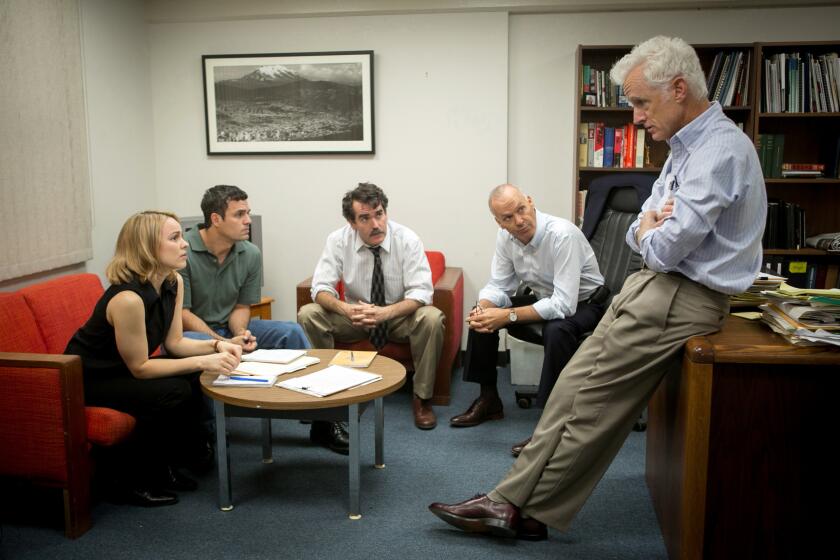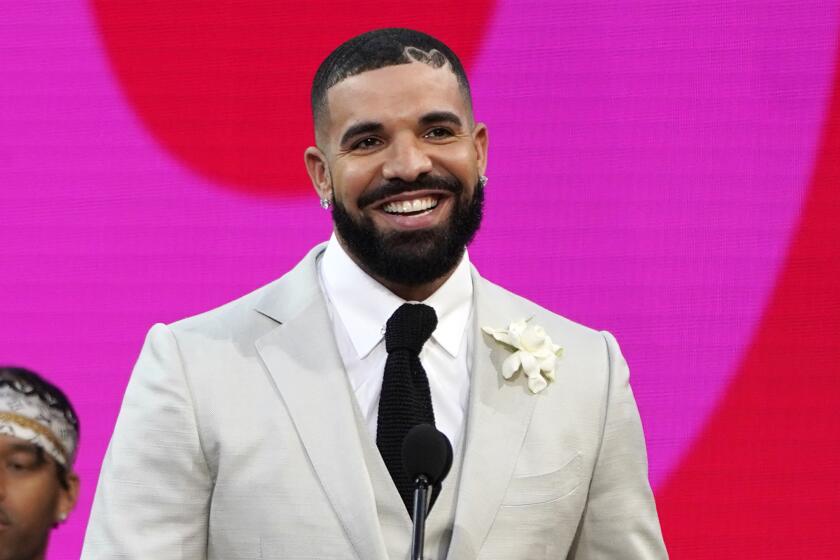Lawsuit against Apple: Writers wary of action by Dept. of Justice
When the Department of Justice and state officials announced their lawsuits against Apple and five major publishers Wednesday, it sent a ripple of anxiety through the talent at the industry’s heart.
“I’m in a bit of an awkward position because this has pitted my publisher against the retailer that far and away sells more of my books than any other,” says Michael Connelly, the bestselling mystery novelist. “I don’t want to bite the hand that feeds me, and both of these hands feed me.”
Connelly is published by Little, Brown, which is owned by Hachette, one of the publishers named in the suits that has since agreed to settle.
The scrutiny given to Apple’s alleged arrangement with the publishers — they are accused of colluding to raise the price of e-books, which they have denied — is largely perceived in publishing as shifting the balance of power in bookselling to Amazon. Publishers rely on Amazon as a major source of print book sales and have generally cooperated with its policies. When it launched the Kindle, Amazon deeply discounted e-book prices and offset the loss with profits from other parts of its business. Apple has been the first significant alternative to Amazon as an e-book retailer.
“I think the DOJ’s suit is misguided,” explains Andrew Wylie, the most powerful agent in publishing, who counts a number of Nobel Prize-winners among his 800 clients. “I think it is acting against the interests of culture and diversity in publishing. I think it is acting against the interests of authors.”
In part, that’s because the pricing of e-books directly affects the way authors can earn a living — and the publishing ecosystem that sustains them. “I know for a fact that my publishers and my editors publish books that they know are going to lose money but they think should be of the world,” says National Book Award-winning writer Sherman Alexie. “The John Grishams of the world support the experimental nature of publishing.” The DOJ’s suit, he says, “gave Amazon explicit permission to go for a total monopoly.”
Connelly observes that the DOJ suit seems to be unbalanced. “I believe in fair play. So I feel that if the government is going to step in and put controls on how publishers act to ensure a competitive marketplace, then I hope the government will be just as vigilant in guarding this amazing, creative and important industry from being monopolized by one entity,” he says. “ Amazon spreads my work far and wide. You can’t beat that. I’m very grateful. But I don’t want a world where there are no bookstores or other venues for discovering my work or the work of any other writers.”
For a writer just starting out, the suit served as a reminder that publishing is in flux. “I love writing and am going to continue writing, but having all my eggs in one basket is kind of scary,” says Elliott Holt, whose debut novel will be published by Penguin in 2013.
More to Read
The biggest entertainment stories
Get our big stories about Hollywood, film, television, music, arts, culture and more right in your inbox as soon as they publish.
You may occasionally receive promotional content from the Los Angeles Times.







